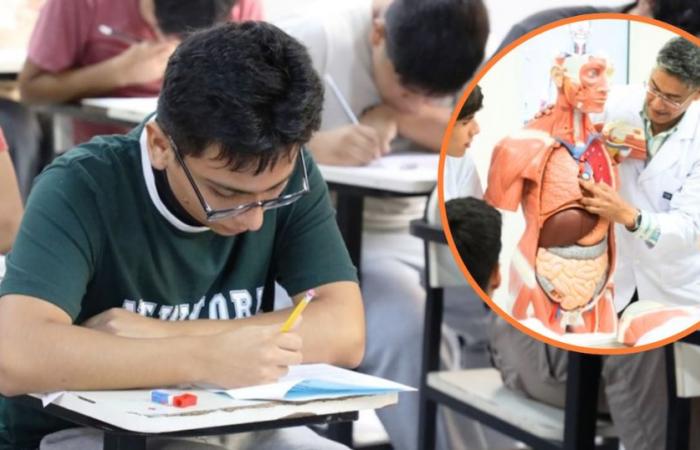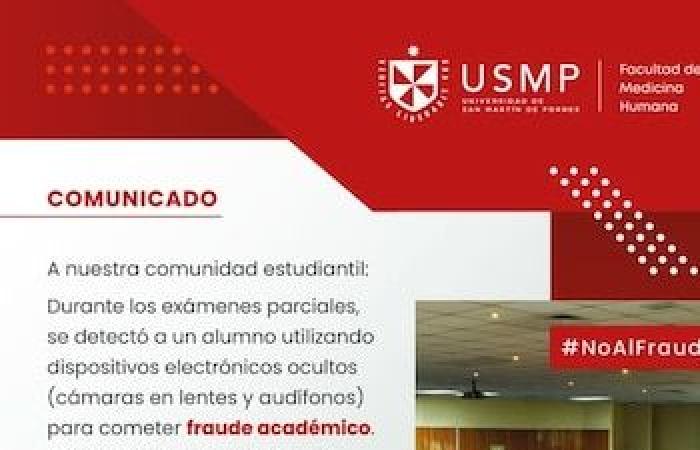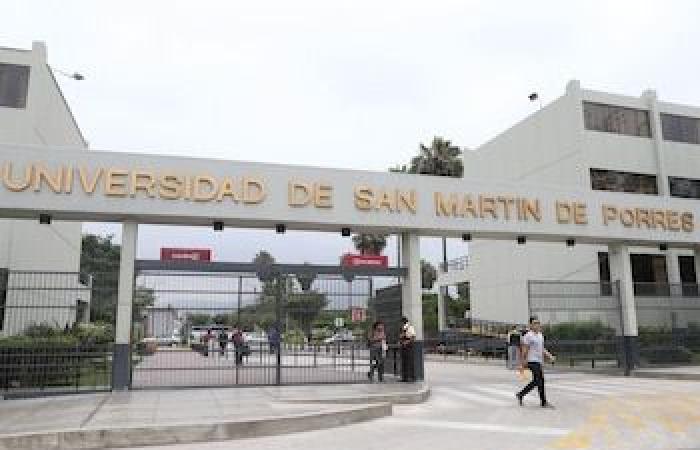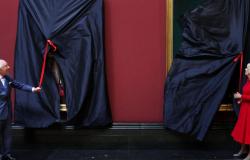Misuse of technology. The University of San Martín de Porres (USMP) reported on the expulsion of a student of the Faculty of human Medicine Due to an attempt that the house of studies considered academic fraud during partial exams.
The student was detected using Electronic devices hidden, specifically lens cameras y earphonesto copy on the exam. This fact was communicated through the official Facebook account of the University, yesterday afternoon, Monday, May 6.
He USMP statement details that the fraud act was identified thanks to the Surveillance systems strict implemented by the university during evaluations. As a result, the student was sanctioned with the Immediate expulsionmeasure that reflects the institution’s policy against academic fraud. In the official message, the University emphasized that “copy or use devices for this purpose entails serious sanctions, including expulsion.”
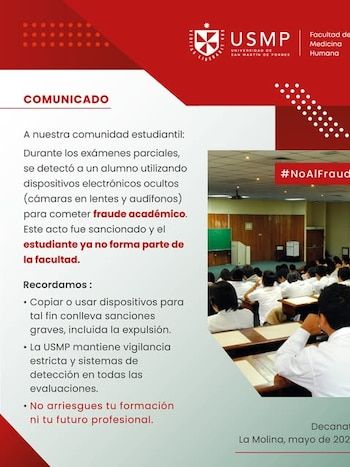
In addition, the university remembered all its student community The importance of acting with integrity in the academic field, warning that the use of Electronic devices To cheat it is a severe infraction.
In the statement, it was also reiterated that Detection systems implemented by the USMP They guarantee continuous surveillance during exams, with the aim of preventing and sanctioning any fraud attempt. In that sense, the university called on students so that they do not risk their training or their professional future by getting involved in dishonest practices.
The university, through its deanery, stressed that this type of behavior will not be tolerated under any circumstance. “Do not risk your training, or your professional future,” concludes the statement.
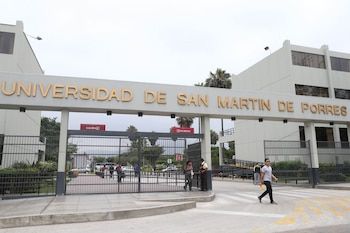
With the advancement of technology, and recently the development of artificial intelligence, some students have begun to use these devices with the purpose of cheating during exams or tasks.
In that sense, the Chatbots developmentapplications that simulate human conversations, has gained great popularity, especially since the Covid-19 pandemic, which accelerated the adoption of Digital technologies In all sectors. Although its origin dates from the 60s, it has been in recent months when these systems, such as Chatgpt, have gained significant relevance. This tool, based on a language model with more than 175 million parameters, is capable of performing various written tasks, from translations to the creation of texts and essays, which makes it a useful tool in multiple contexts.
However, the growing use of Chatgpt and similar platforms has generated concern in educational institutionswho now face challenges to ensure authenticity of your students’ work.
In that sense, several educational centers have responded by hardening their regulations and modifying their Evaluation systems. In Australia, universities have chosen to return to the evaluations to ‘pencil and paper’, leaving aside the exams performed by electronic devices. Dr. Matthew Brown, vice president of the country’s leading group of universities, mentioned in statements to The Guardian that “the redesign of evaluations is urgent” and that universities are working to anticipate the artificial intelligence developments.
The University of Sydney has gone a step further, implementing a policy in which to generate content using iartificial is considered a form of cheat and is subject to sanctions. For its part, the National University of Australia has modified its evaluation methodsprioritizing laboratory and field work activities, in addition to timing exams and increasing oral presentations.
This approach reflects the concern that students may be using Platforms like Chatgpt To perform their tasks without performing their own analysis, which has led teachers to convene extraordinary meetings to define new protocols and qualification methods.
In New York, the United States, public schools have banned Access to chatgpt in their school networks and devices, citing similar concerns about the use of these tools to avoid academic work. The effectiveness of these platforms has been tested, as Paul Taylor, a computer health professor at the University College of London, who published an article in the London Review of Books about how one of these programs answered in a consistent and completely to exam questions.

